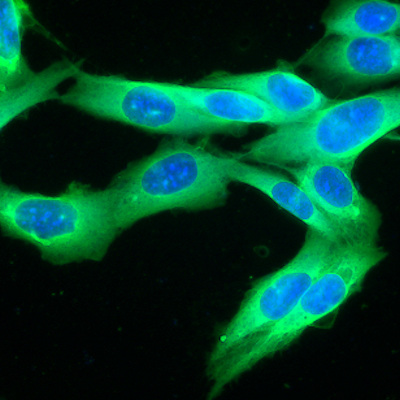November 1, 2022 -- University of Bristol researchers found that reprogramming immune cells to kill off cancer cells works against melanoma -- an otherwise hard to treat skin cancer. The discovery, published October 31 in the journal Advanced Science, demonstrates a potential new way to clear early stage precancerous and even late-stage tumor cells.
Using tiny artificial capsules called protocells designed to deliver cargoes for reprogramming white blood cells, the scientists transformed these inflammatory immune cells making them more effective at slowing down melanoma cell growth in both animals and humans.
First, the team tested zebrafish larvae; due to their translucency, researchers could view immune cell interactions with cancer cells. Protocells loaded with anti-miR223 molecules that bind to and interfere with signaling machinery in the larvae's immune cells drove altered interactions, slowing growth and increasing death in cancer cells.
The researchers repeated the experiment in adult zebrafish with tailfin melanomas. The cancer cell growth was significantly inhibited, indicating that this strategy might also be feasible for shrinking larger, more established cancers.
To investigate the feasibility of protocell delivery of reprogramming anti-miR223 cargoes in humans, the experiment was repeated using primary human immune cells. The protocells were found to effectively deliver and reprogram these cells toward a more persistent proinflammatory and potentially anticancer state.
"Our results highlight the therapeutic benefits of harnessing host immunity to eradicate cancers," Bristol professor and co-author Stephen Mann, PhD, said in a statement. "While our experiments in zebrafish are early preclinical studies, our results indicate that the same is possible for human immune cells, at least in vitro, and can be similarly reprogrammed to suppress cancer growth."
Copyright © 2022 scienceboard.net










